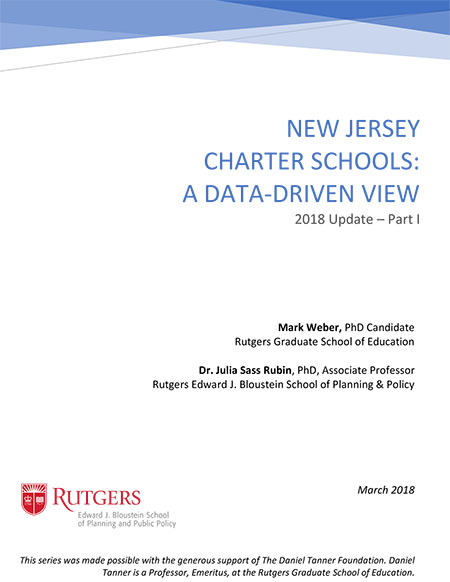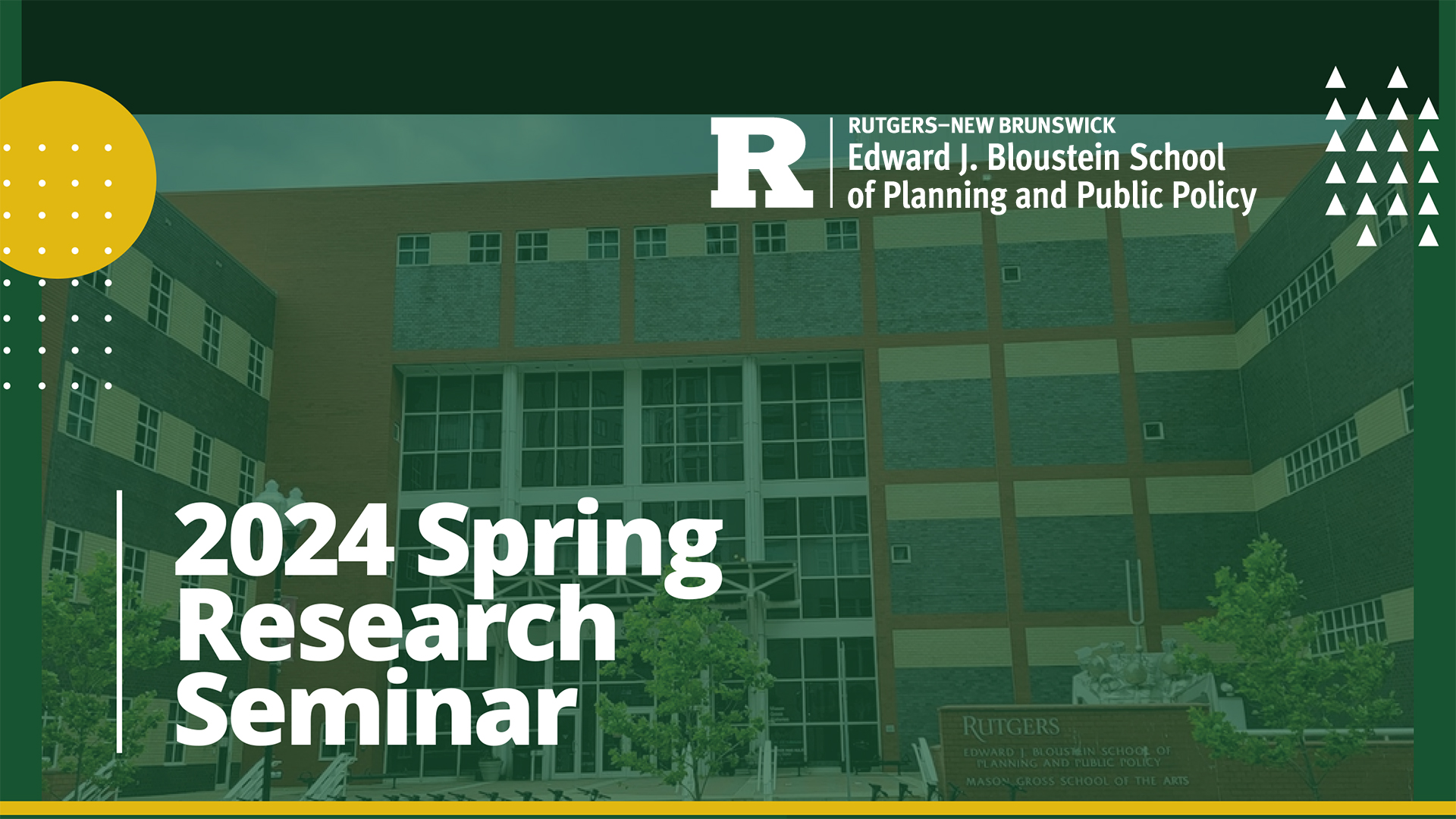 New Rutgers report finds New Jersey charter schools have grown significantly in enrollment and financial impact over the last decade yet continue to enroll a fundamentally different student population than the districts where their students reside
New Rutgers report finds New Jersey charter schools have grown significantly in enrollment and financial impact over the last decade yet continue to enroll a fundamentally different student population than the districts where their students reside
New Jersey charter schools have seen a dramatic increase in enrollment and the funding that they receive from New Jersey school districts, and are educating a fundamentally different student population than the districts where their students reside, according to a new report by researchers from the Edward J. Bloustein School of Planning and Public Policy and the Graduate School of Education at Rutgers University-New Brunswick.
The report, New Jersey Charter Schools: a Data-Driven View, 2018 Update—Part I, authored by Julia Sass Rubin, Bloustein School associate professor of public policy and Mark Weber, Ph.D. candidate at the Rutgers Graduate School of Education, found that New Jersey charter schools have grown significantly in enrollment, number of sending districts, and financial impact, specifically noting that:
- Charter enrollment has more than tripled over the last decade, surpassing 53,000 students by 2017-18.
- Almost half of all New Jersey school districts send students and funding to charter schools. The number of such districts has increased from 198 in 2007-08 to 273 in 2017-18.
- In the 2017-18 school year, traditional and renaissance charter schools will receive an anticipated $750 million in funding from New Jersey’s school districts, more than four and a half times the $164 million transferred to charter schools a decade ago.
Despite this growth, Rubin and Weber found that New Jersey charter schools continue to enroll a fundamentally different student population than the districts where their students reside:
- New Jersey charter schools enroll proportionally fewer special education and Limited English Proficient students than their sending district public schools.
- The special education students enrolled in charter schools tend to have less costly disabilities compared to special education students in the district public schools.
- Measures of student poverty are becoming increasingly unreliable because of school district participation in the U.S. Department of Agriculture’s Community Eligibility Provision (CEP), which
- allows high-poverty school districts and charter schools to provide free meals to all of their students. However, data for non-CEP districts shows that many charter schools continue to enroll fewer at-risk students then their sending district public schools.
In light of these findings, the authors recommend that New Jersey and the New Jersey Department of Education re-examine the state’s charter school law to align the power to authorize new and expand existing charter schools with the financial impact of those decisions as well as modify the criteria used to evaluate the state’s charter schools.
“The NJDOE must also examine why New Jersey charter schools do not reflect the population of their sending school districts and make public the data that is already collected, in order to enable researchers to further study this problem,” the authors note. “NJDOE should explore more accurate ways of measuring differences in student socioeconomic status, including survey and sampling methods, to ensure the student population characteristics of charter schools mirror the sending school districts.”
This report is the first of two updates to the 2014 and 2015 editions of New Jersey Charter Schools, a Data-Driven View and is made possible by the generous support of The Daniel Tanner Foundation. Daniel Tanner is a Professor Emeritus at the Rutgers Graduate School of Education.
To speak with the report authors, please contact Karyn Olsen at karyno@rutgers.edu or 848-932-2814.



